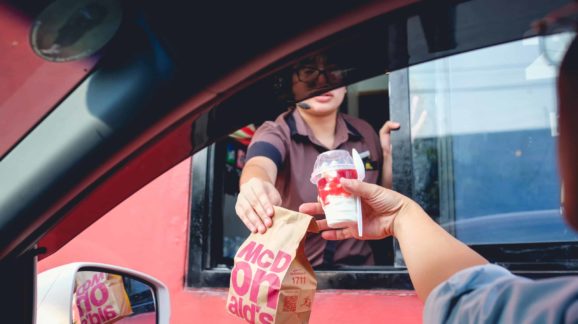Are Democrats All or Nothing for a $15 Minimum Wage?

Photo Credit: Getty
Can congressional Republicans bid down the Democrats’ and Biden administration’s push for a $15 an hour minimum wage? That’s what Republicans lead by Sens. Tom Cotton of Arkansas and Mitt Romney of Massachusetts are attempting. They introduced new legislation Tuesday to raise the federal minimum wage to $10 an hour, up from the current rate of $7.25, over five years, and index it to inflation.
“For millions of Americans, the rising cost of living has made it harder to make ends meet, but the federal minimum wage has not been increased in more than ten years. Our legislation would raise the floor for workers without costing jobs,” Romney said.
The proposal comes the Senate awaits a ruling by the Parliamentarian over whether the $15 minimum can be included as part of the next COVID-19 relief package. If the parliamentarian says no, the Democrats will surely take it up as a separate, stand-alone legislation.
The question is, will any Democrats accept less than $15? The party has swung fully behind the idea, but as recently as 2015 it was so radical that Hillary Clinton was initially against it in her presidential bid. Vermont Sen. Bernie Sanders battered her over the issue during the nomination fight and by 2017 the Democratic leadership had swung behind it.
At the time Democrats had the luxury of knowing that they lacked the leverage in the White House or Congress to enact the increase. They could have the slogan without having to enact anything. Now, with the and White and nominal control of Congress, they can follow through on their rhetoric, and a lot of Democrats are spooked by that. Senate moderates like West Virginia’s Joe Manchin and Arizona’s Kyrsten Sinema have raised concerns to suggest there are cracks in the party lines.
House Democrats are also expressing concern over raising the federal rate that high. Rep. Dean Phillips, a Minnesota Democrat, said at a House Small Business Committee hearing Wednesday that a local restaurant owner had warned him that a $15 minimum wage “will mean he will have to cut jobs if he hopes to stay open. I take these concerns seriously.”
The Democrats are right to be worried. The nonpartisan Congressional Budget Office (CBO) has predicted a $15 minimum wage would cost 1.4 million jobs, and that’s just the jobs lost. The CBO’s figure doesn’t count the hiring that places would forgo or employers cutting back on hours for workers, both common practices to cut back on higher labor costs.
Cotton and Romney’s proposal would in effect split the difference, raising the federal rate but at a level that most businesses would likely have little trouble maintaining. The irony of this is that $10 minimum wage was about where the Democratic Party was on the issue just a few short years ago. The Democrats could take Romney and Cotton’s bill and simply declare victory.
Back in the days when the Democratic Party was led by figures like the late Massachusetts Senator Ted Kennedy, that was exactly what they would do: Their thinking was that a half-a-loaf solution that nevertheless moved policy in their direction and was certain to get through Congress was better than the gamble of pushing for something more ambitious that might fail.
The Democrats look very different today. The $15 fight is led by figures like Vermont Senator Bernie Sanders, an independent rather than a Democrat, who is fixated as much on punishing the wealthy as hie is helping the poor. “In 2019, McDonald’s made over 6 billion in profits and paid its CEO over $18 million in compensation, while the average worker at McDonald’s makes as little as $9 an hour,” Sanders declared at a Thursday Budget Committee hearing. California Rep. Ro Khanna told CNN Sunday, “I don’t want small businesses that are underpaying employees.”
Is that where the rest of the Democratic Party is now? It is hard to say. A further wrinkle is that the GOP $10 bill includes mandatory E-Verify for businesses. This was apparently included to entice Republicans reluctant to compromise in any way but may drive Democrats who are both pro-businesses and pro-mmigration.